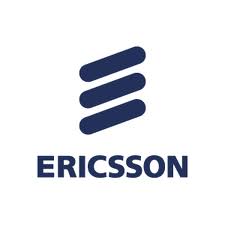  Airvana Network Solutions Inc, has sued Ericsson, the world's largest telecommunications network equipment maker, for more than $330 million accusing the latter of stealing trade secrets and trying to drive it out of business.
Airvana Network Solutions Inc, said Ericsson secretly joined with a Korean partner to develop "knock-off" hardware based on Airvana technology, and which could then be sold to wireless carriers Verizon Wireless and Sprint Nextel Corp.
Airvana has begun litigation in the New York State Supreme Court seeking to enjoin Ericsson from selling a product based on Airvana’s misappropriated proprietary technology. In addition to enjoining Ericsson from its wrongful conduct, the company seeks $330 million in actual damages.
“Ericsson’s behavior is a classic example of a giant multinational using its size and position to extract the profits from a smaller, innovative American company. They are brazenly doing so in violation of both our contractual agreement with them and the trust we placed in them when we licensed our proprietary technology,” said Randy Battat, President and Chief Executive Officer of Airvana. “Ericsson has misappropriated Airvana’s technology and used it to attack Airvana’s business. In order to protect our company, we are left with no alternative to litigation.”
For over a decade, Airvana has developed a product line that enables tens of millions of Americans to access data on wireless devices over the 3G CDMA networks run by such industry leaders as Verizon and Sprint. The products help to make smartphones smart by enabling those devices to send and receive high-speed data, such as email and web-browsing, over the operator’s networks.
Starting in 2001, Airvana supplied its data-enabling products, which consist of both hardware and software, to the now-bankrupt telecommunications equipment manufacturer Nortel, so Nortel could resell the products to network operators such as Verizon and Sprint.
In 2005, Nortel convinced Airvana to hand over its proprietary hardware designs so that Nortel could take over manufacturing the hardware. Under the contract governing this hand-over, Airvana would continue to supply the software for the product, and Nortel would pay Airvana a royalty for each product it sold. The contract stipulated that Nortel could not sell any product that used Airvana’s proprietary hardware designs (or any hardware based on those designs) without using Airvana’s software and paying Airvana the agreed upon royalty. In 2009, Ericsson purchased Nortel's North American wireless equipment business after Nortel went bankrupt, and among the assets it acquired from Nortel was the contract with Airvana.
In late 2011, Ericsson informed Airvana that it was planning to sell a competing product using software it had secretly developed with a Korean partner, rather than Airvana’s software. The product’s hardware is based on Airvana’s hardware designs, and thus violates the contractual agreement in force between Airvana and Ericsson.
Airvana is one of the largest remaining U.S.-based manufacturers of wireless telecommunications equipment, and has more than 200 employees working at its Chelmsford, Massachusetts headquarters.
“Ericsson is Airvana’s sole customer for the technology that provides all of Airvana’s current revenues,” said Mr. Battat. “Ericsson’s course of conduct could put our company in jeopardy.”
The suit alleges that Ericsson began to look for ways to avoid its obligations under its contract with Airvana and embarked on a strategy aimed at harming and ultimately driving Airvana’s business into insolvency. |